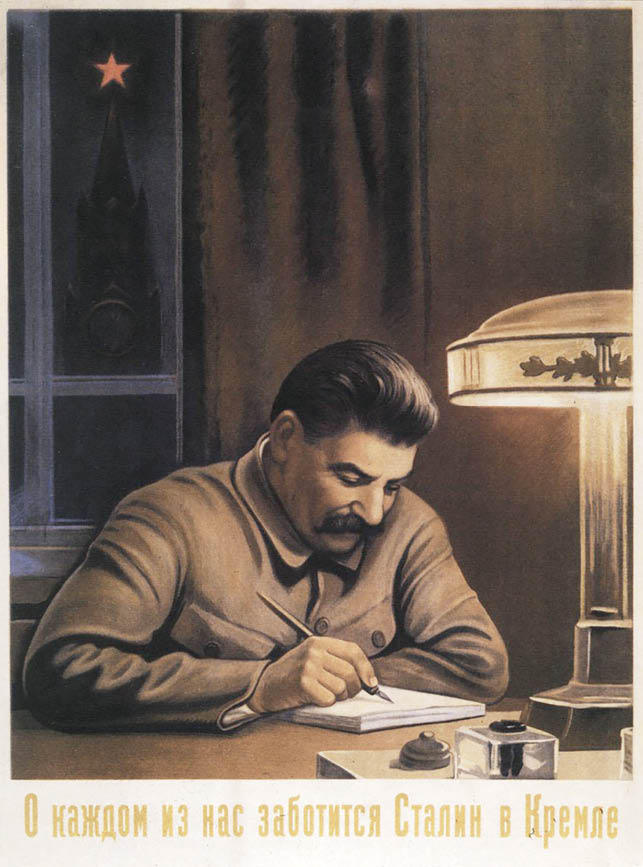Winston Churchill and The Russian Civil War
 |
| Winston Churchill © IWM (Q 34664) |
Key Terms:
Bolsheviks (Red): Started the Revolution in 1917 and overthrew the Tsar, withdrew Russia from WW1.
Anti-Bolsheviks (Whites): Largely ex-military and supporters of the Tsar who wanted to keep Russia in WW1.
What Were the British Aims During The Russian Civil War?
Following the collapse of Tsarist Russia and consequential withdrawal from WW1, Britain aimed to reconstitute the Eastern Front to keep Germany weak and to prevent them from taking advantage of Russian raw materials. The best way to do this was to support the Whites, who wanted to re-enter the war against Germany. However after WW1, the motives to help the Whites were dwindling, resulting in a very vague and half hearted policy.
What were Churchill's Aims?
Churchill was insistent on continuing the Russian Civil War. He believed that world peace and a successful League of Nations would not be achievable until a democratic government was formed in Russia. Churchill's aim was to fight the Bolsheviks using the White Russian Armies led by Denikin, Kolchak and Yudenitch using British weapons and reinforcements.
Practical Decisions
Although Churchill had elaborate plans for intervention in Russia, they were quite practical. At the Paris Peace Conference 1919, French President Georges Clemenceau was all for withdrawing from talks with the Prinkipo Conference (talks with all Russian factions of the Civil War). Churchill on the other hand insisted that they continue until other plans had been made rather than leaving themselves without a sense of direction. He called to issue the Bolsheviks with an ultimatum - negotiate a ceasefire or direct military action would be issued.
Churchill was very concerned with the British Empire and the balance of power. He considered White Russian Generals, Kolchak and Denikin to be crucial to keeping British paths to India, Britain's 'jewel in the crown', out of Bolshevik hands. He was also worried that Russia would be taken over by Germany and Japan if the Allies withdrew which again posed a huge threat to British territories, namely India. Imperial aims were clearly quite central to Churchill's aims in the war. Was this enough to justify further conflict after a world war?
Well, What About the Domestic Impacts?
Although Churchill seemed to have British imperial interests in mind, he did not really consider what the impact of the war would have on Britain domestically. Post 1918, there was a great sense of war weariness in Britain and concern about economic issues. This was a concern also held by Prime Minister, David Lloyd George. War after all is a very costly habit and Britain was in a severe amount of post-war debt already.
A Rampant Anti-Bolshevist
It is no secret that Churchill was a rampant anti-Bolshevist (it's even a key theme in some seasons of Peaky Blinders). He was often criticised by his colleagues, including Lloyd George, for obsessing over Russian policy. It seemed that Churchill was willing to further the country's economic problems in the name of destroying Bolshevism.
 |
| A group of Russian soldiers, probably servicemen of the White Forces, posing for a photograph. © IWM (Q 86838) |
Since the First World War had ended, there was no longer a need to reconstitute the Eastern Front. This meant that the Allies didn't have much of a motive for continued intervention in Russia and policy was therefore all a bit vague. Maybe we can praise Churchill for making a decision on what should be done when nobody else would. However, some British officials, such as Curzon, were cautious to put faith in the White forces as they believed that if they were in control, they would create a hostile Russia and potentially a military dictatorship, posing an even greater threat to the empire.
Guarantee of Independence...Sort Of.
Churchill wished to use newly created states surrounding Russia as proxy fighters against the Bolsheviks in return for their independence and military supplies. Lloyd George criticised this view, stating that whether it was a Red or White victory neither would support the independence of these states. Should we be questioning Churchill's morality in asking newly formed states to help him on his mission in return for a guarantee of their independence when he knew full well that he could not keep his end of the bargain?
Clearly Churchill wanted to achieve a total regime change in Russia by supporting the White forces. Whilst his plans were practical and provided a sense of direction when British policy was vague and, well lets face it a bit clueless, it does seem that he was blinded by anti-Bolshevism and had not considered the impact on Britain domestically.
What are your views on Churchill's plans for interventions in Russia?
Further Reading:
Alston, C. “ ‘The Suggested Basis for a Russian Federal Republic’: Anti-Bolshevik Russia and the Border States at the Paris Peace Conference, 1919,” The Journal of Historical Association 91, No. 301 (2006) pp. 24-44
Bradley, J. Allied Intervention in Russia 1917-1920, London: Weidenfeld & Nicolson, 1968
Churchill, W. (Secretary of State for War), Memorandum sent to Wilson concerning policy on Russia, The National Archives (TNA), CAB/24/75, London: War Office February 1919
Fisher,J. “‘On the Glacis of India’ Lord Curzon and British Policy in the Caucasus 1919,” Diplomacy & Statecraft 8, no. 2 (1997) pp. 50-82
Gilbert,M. Winston Churchill: Companion Volume IV Part 2 July 1919-March 1921, London: William Heinemann Ltd. 1977
Kopisto, L “The British Intervention in South Russia,” Dissertation, University of Helsinki (2011)
Keeble, C. Britain and the Soviet Union, 1917-89, Hampshire: The Macmillan Press Ltd. 1990
Kettle, M. Russia and the Allies 1917-1920: Churchill and the Archangel Fiasco November 1918-July 1919, London: Routledge, 1992
Kinvig, C. Churchill’s Crusade: The British Invasion of Russia 1918-1920, London: Hambledon Continuum, 2006
Lloyd George, D. The Truth About the Peace Treaties, London: Victor Gollancz Ltd. 1938
Quinalt, R. “Churchill and Russia,” War and Society 9, no. 1 (1991) pp.99-120
Ruotsila, M. “The Churchill-Mannerheim Collaboration in the Russian Intervention, 1919-1920,” The Slavonic and Eastern European Review 80, No. 1 (2002) 1-20
Silverlight, J. The Victors’ Dilemma: Allied Intervention in the Russian Civil War, London: Barrie & Jenkins Ltd. 1970
Thomson, M. Churchill: His Life and Times, Watford: Odhams Books Ltd, 1965
Ullman, R.H. Anglo-Soviet Relations 1917-1921: Intervention and the War Vol. 1, London: Oxford University Press, 1961
Wade, R.A. The Bolshevik Revolution and Russian Civil War, Westport: Greenwood Press, 2001




